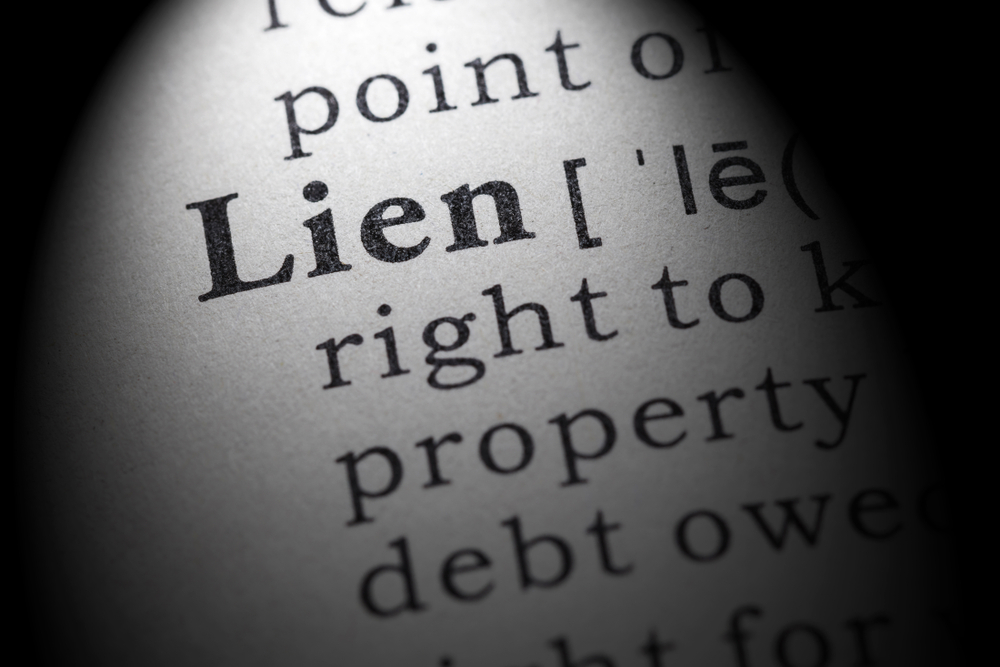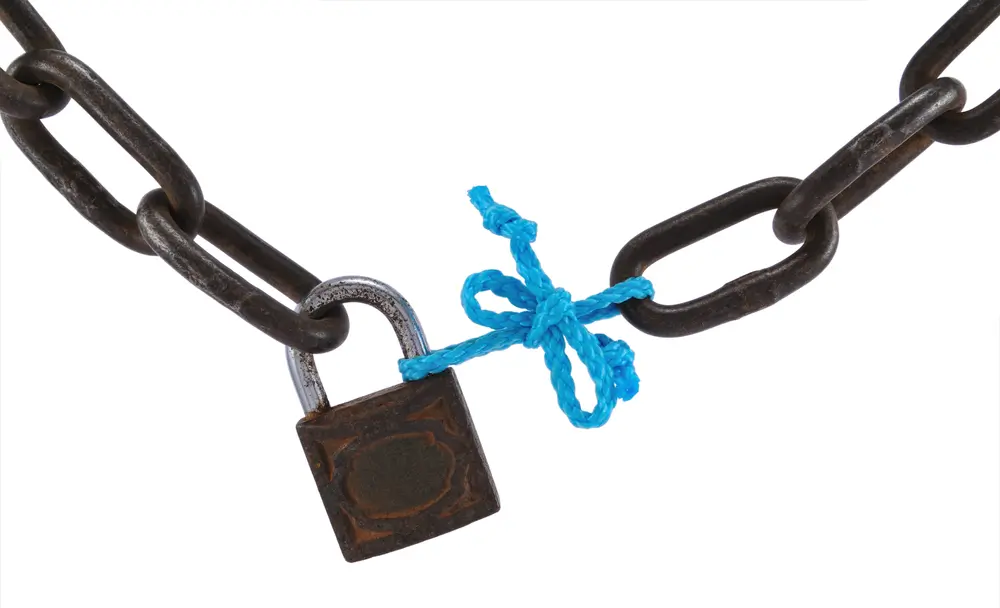What is a lien?

Liens can play a critical role in the resolution of personal injury cases in Louisiana. A “lien” is a legal tool that provides a way to secure payment of a debt or obligation to protect a third party’s financial interest. A lien on a personal injury case requires the insurance company or attorney to pay the lienholder’s debt prior to resolving the case.
Various different entities can place a lien on a personal injury case. Common lienholders are:
- Health care providers;
- Health insurers, including private health insurance, Medicare, and Medicaid;
- Government entities, like the VA;
- Workers compensation insurers;
- Short and/or long-term disability insurers;
- Workers compensation insurers; and,
- Persons entitled to child support, among others.
Health Care Provider Liens
Louisiana law gives health care providers the ability to demand payment of their medical charges from your settlement or judgment. Louisiana Revised Statute 9:4752 establishes that health care providers, such as doctors, hospitals, and ambulance service providers, are permitted to place a lien on a personal injury settlement or judgment to recover the reasonable charges or fees incurred for services and treatment related to the accident.
However, health care providers must follow a specific process in order to legally assert their lien. In order for a health care lien to become effective, the provider must send proper notice. If the provider fails to provide proper notice, then a lawyer can challenge the provider’s right to assert a lien. Additionally, any person who receives a proper notice has the right to demand an itemized statement. If the health care provider fails to provide an itemized statement, then the lien becomes ineffective and unenforceable.
While Louisiana law grants health care providers the right to recover from a personal injury payout, there is a specific legal process that needs to be followed. A skilled personal injury lawyer ensures that any health care lien asserted follows this procedure before it is paid. Your personal injury lawyer will also negotiate with providers to ensure that you receive as much compensation for your injuries as possible.
Health Insurance Liens
When health insurance pays the medical bills associated with your accident, the health insurance company may be entitled to demand repayment of what they’ve paid to the provider that treated you for injuries sustained from your accident. Various laws govern why this happens:
Private Health Insurance
Like most people, you have probably never read the policy governing the health insurance you purchased or that is provided by your employer. Many people are surprised to learn that most private health insurance plans contain a “subrogation” or “reimbursement” clause in their policy that contractually permits the insurer to recover amounts paid in relation to a personal injury case. In addition to the policy language, many health plans fall under the Employee Retirement Income Security Act (“ERISA”). ERISA contains a preemption provision that allows the subrogation /reimbursement clause in the insurance policy to supersede any state law governing subrogation. Regardless of whether you have an ERISA plan, under most, if not all, policies, health insurers are entitled to place a lien on a personal injury case to recover amounts paid in connection with accident-related treatment.
However, an effective personal injury lawyer will negotiate with the health insurer to reduce the total amount paid from your case. There are also various laws that benefit personal injury victims with health insurance liens on their case, such as the collateral source rule and the made-whole doctrine. Your personal injury lawyer can advise you on how these laws protect your rights.
Medicare
Medicare has an automatic lien for any amount they pay for treatment related to an accident. Two federal statutes, 42 U.S.C. §1395 (b)(2) and § 1862(b)(2)(A)(ii) provide that Medicare program becomes a “secondary payor” and may deny a medical provider’s claim for payment when payment “has been made or can reasonably be expected to be made under a workers’ compensation plan, an automobile or liability insurance policy or plan (including a self-insured plan), or under no-fault insurance.”
If Medicare does pay for accident-related medical treatment, they are entitled to be repaid by law. In fact, unlike private health insurers who need to give notice of their lien, Medicare’s lien is automatic. The law at 42 U.S.C. § 1395y(b)(2)(B)(iv) requires that personal injury attorneys repay Medicare regardless of whether Medicare has made a request.
Before a settlement or judgment is reached in a personal injury case, the injured party’s attorney must obtain a conditional payment letter from Medicare. This letter lists the medical expenses related to the accident that Medicare has paid on behalf of the beneficiary. The attorney must then negotiate with Medicare to determine the amount of money that Medicare is entitled to recover from the settlement or judgment.
If Medicare’s conditional payment claim is not paid, Medicare can take legal action to recover the money it is owed. This can include demanding reimbursement from the attorney, garnishing the injured party’s wages, or pursuing other legal remedies.
Negotiating with Medicare to reduce the amount of the conditional payment is a common practice in personal injury cases. Medicare is required to ensure that it is reimbursed for the medical expenses it paid on behalf of the beneficiary, but it is also required to take into account the attorney’s fees and other costs of recovery.
The injured party’s attorney can negotiate with Medicare to determine the amount of money that Medicare is entitled to recover from the settlement or judgment. The attorney can argue that the amount of the conditional payment should be reduced based on various factors, such as the injured party’s comparative fault in the accident, the amount of the settlement or judgment, or the attorney’s fees and costs of recovery.
It is important to note that negotiating with Medicare can be a complex and time-consuming process, and requires a thorough understanding of Medicare regulations and procedures. Therefore, to obtain the best possible outcome for you, it is advisable to work with an experienced personal injury attorney who has experience negotiating with Medicare.
Medicaid
When a Medicaid beneficiary receives a settlement or judgment in a personal injury case, Medicaid has the right to recover the amount of money it spent on the beneficiary’s medical care related to the accident. Like Medicare, Medicaid’s lien is automatic.
Medicaid subrogation is governed by state law, which requires that Medicaid be notified of any personal injury case involving a Medicaid beneficiary. The law also requires that Medicaid be paid from any settlement or judgment in the case, up to the amount of money it spent on the beneficiary’s medical care. In order to comply with Louisiana’s Medicaid subrogation law, the injured party’s attorney must provide notice to Medicaid of the pending personal injury case. Once the case is resolved, Medicaid will typically send a demand letter requesting reimbursement for the amount it spent on the beneficiary’s medical care related to the accident.
If Medicaid’s subrogation claim is not paid, the state can take legal action to recover the money it is owed. This can include placing a lien on the injured party’s settlement or judgment, garnishing the injured party’s wages, or pursuing other legal remedies.
An experienced personal injury attorney can help navigate the complex legal issues surrounding Louisiana Medicaid subrogation. They can work with Medicaid to negotiate a fair and reasonable settlement of the subrogation claim, and ensure that the injured party is not left with an unfair financial burden after their case is resolved.
VA Liens
If you’re a veteran, active service member, or family member seeking medical care related to injury case, it’s important to understand the Federal Medical Care Recovery Act (FMCRA). This law governs the federal government’s right to recover medical expenses that were incurred for the medical care of an injured beneficiary, where a liable third party exists.
Similar to the Medicare Secondary Payer Act, FMCRA provides the federal government with an independent right of recovery against liable third parties, as well as a right of subrogation, assignment, and the ability to intervene or join a beneficiary’s claim. This means that the federal government can recover medical expenses from third-party payers and expects the beneficiary to take the lead in protecting its interests.
While federal law does not require attorney fee or expense offsets, the medical care recovery offices, whether representing the VA or TRICARE, frequently work with personal injury attorneys to reduce the amounts owed. In the case of TRICARE, depending on the branch of the military that provided benefits, there may be certain settlement value thresholds in which the Judge Advocate General’s office is required to handle the claim instead of the military’s branch offices.
Resolving a VA claim has its own unique set of challenges, including obtaining a bill for services rendered. The VA does not typically generate bills for the treatment they provide. However, when a veteran is injured by a third-party, the VA facility that provided treatment must generate the bills to: (1) establish the value of medical services rendered for purposes of settlement or judgment; and (2) establish the amount of their lien. This process can take additional time, so important for personal injury attorneys start the process early.
Workers’ Compensation Liens
In Louisiana, when an employee is injured on the job due to the negligence of a third party, they may be entitled to workers’ compensation benefits as well as damages from the third party. However, when a workers’ compensation claim is involved, the law allows the workers compensation provider to place a lien placed on any settlement or judgment obtained from the third party. This lien is to recover the costs that the workers’ compensation insurer paid for the employee’s medical treatment and wage replacement (indemnity) benefits.
One issue that frequently arises in third-party liability cases involving workers’ compensation liens in Louisiana is the Moody reduction. The Moody reduction is a legal principle that allows the injured employee to reduce the amount of the workers’ compensation lien based on the employee’s attorney fees and costs.
The Moody reduction is named after a 1987 Louisiana Supreme Court case, Moody v. Arabie,. Since then, Moody has been adopted in part and rejected in part by the legislature in LA R.S. 23:1103(C), which allows for a reduction of the workers’ compensation lien by up to one-third.
The reduction is important because it can significantly impact the amount of money that the injured employee needs to repay the Workers’ Compensation program. Without the Moody reduction, the injured employee could be forced to pay back the full amount of the workers’ compensation benefits received. However, with the Moody reduction, your personal injury attorney can negotiate up to a one-third discount, allowing the clients to take home more money.
If you have been injured on the job due to the negligence of a third party in Louisiana, it is important to work with an experienced personal injury attorney who can help you navigate the complex legal issues surrounding workers’ compensation liens and the Moody reduction. Your attorney can help negotiate a fair settlement or judgment and ensure that your rights are protected throughout the legal process.
Child Support Liens
In Louisiana, when a parent is court ordered to pay child support, they have a legal obligation to make those payments. However, when a parent doesn’t pay or falls behind on their child support obligations, their names are entered into a database known as the “Louisiana Insurance Intercept Database.” Insurance companies are required to register with this database and provide information on all individuals making injury claims. This is done by entering Social Security numbers, first and last names, and birth dates. Once back-due child support is identified by the database, the child support agency may place a lien for the back-due amounts on any injury settlement or judgment. This means that if the injured parent owes back child support, a portion of their settlement or judgment may be used to satisfy that obligation.
The process for placing a child support lien on a personal injury settlement or judgment can vary depending on the specific circumstances of the case. In general, the child support agency will need to file a claim with the court or the attorney handling the personal injury case to assert their lien rights. The agency will need to provide documentation of the amount of child support owed and any other fees.
Once the child support lien has been asserted, the injured parent and their attorney will need to work with the child support agency to determine the amount of the lien and how it will be satisfied. In some cases, the injured parent may be able to negotiate a reduced lien amount or a payment plan with the child support agency.
It is important to note that failing to satisfy a child support lien in a personal injury case can have legal consequences. The child support agency may take legal action to recover the amount owed, and the injured parent could be subject to penalties such as wage garnishment or even imprisonment.
Working with an experienced personal injury attorney can help injured parents navigate this complex legal issue and ensure that their settlement or judgment is appropriately allocated to satisfy any child support obligations.
Related Blog Posts:
HIRE ONE OF THE BEST
PERSONAL INJURY LAWYERS

If you’ve been injured in an accident, it is imperative that you secure the best legal representation as soon as possible. Fill out the form below to get started for FREE.
Testimonials
“My attorney Maxwell Malvin was excellent. Could not have asked for better personal attention. Very professional but yet personal. Recommended highly.”
“Max did an incredible job, helping and communicating with me these past months. I felt secure with the information he told me. He explained everything where I was able to understand all the important information I would need to know about my case. Max was very professional with his work and didn’t hesitate to let me know when some problems came around. If someone ever got into an accident I will highly recommend Max Malvin as they lawyer to help them on their case.”
Exceptional Service – above and beyond pleased. Max Malvin is very professional!
I loved being able to visit in person with Max…
“Was very apprehensive about calling a lawyer but after letting Attorney Max Malvin handle my case, he walked me through the entire process and kept in contact throughout even if there was nothing to report.”
“My attorney with Malvin Law was beyond impressive. I was involved in a car accident and from the first call my attorney Max was “ALL OVER IT” he handled all the logistics, set me up with a rehab facility and I began treatment within 72 hours of my accident. Past that point he checked in with me weekly not to update me necessarily, but just to see how I was doing and feeling. He got me the best settlement he could and really fought for my best interest. Highly recommended! ⭐️⭐️⭐️⭐️⭐️”
“Not your normal lawyer, Max has everything you want in a human being. Very polite and easy to work with. Ive worked with a lot of people in his industry and I believe he is the best.”







